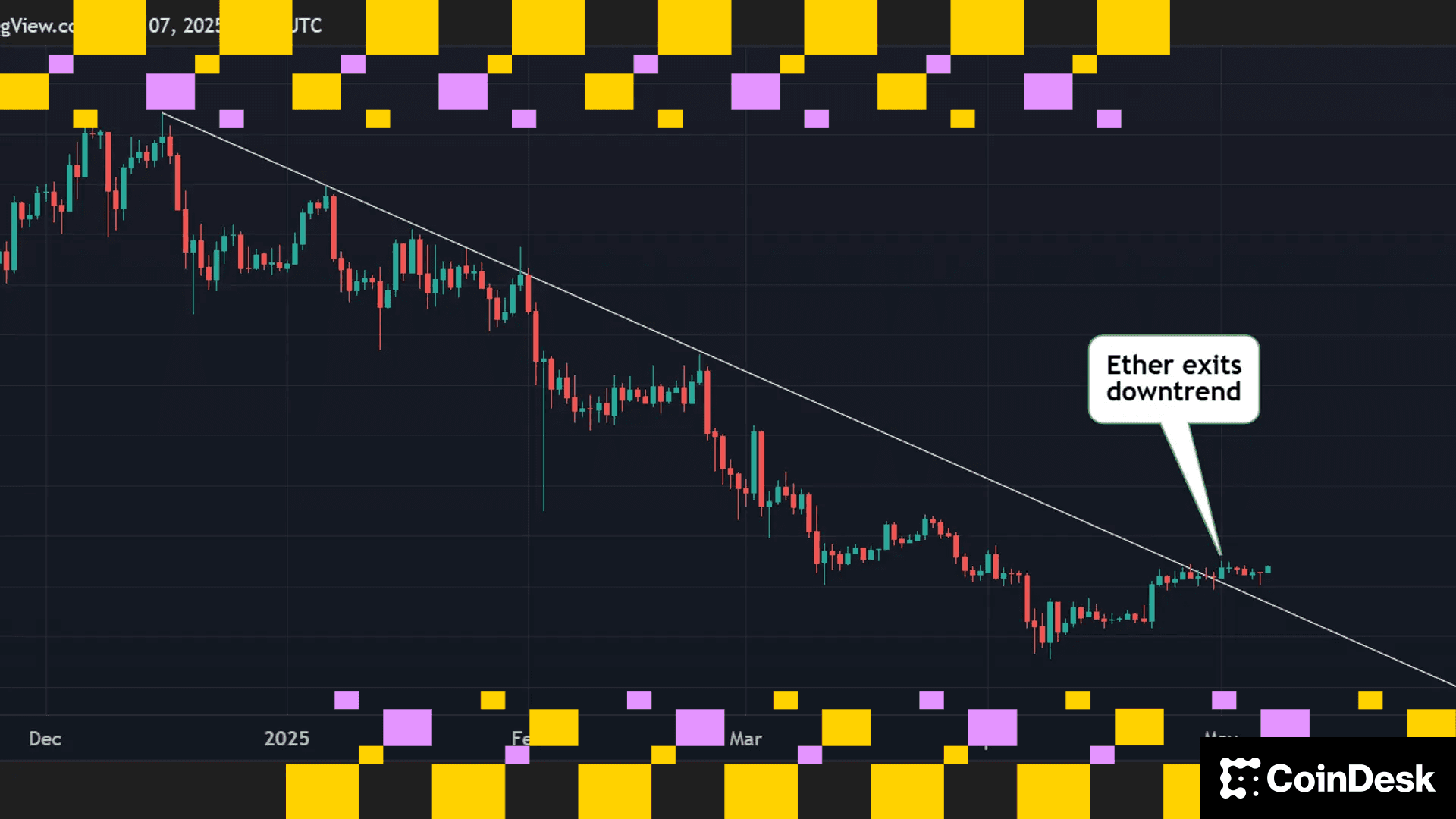TradFi Underestimates Bitcoin's Enormous Scale, Franklin Templeton CEO Says
Bitcoin processed $36.6 trillion in transactions last year, far more than payment network giants Mastercard and Visa combined.

- Franklin Templeton CEO Jenny Johnson said traditional finance is underestimating the size of bitcoin.
- She referenced the cryptocurrency's transaction volume, which in 2023 was twice as high as that of Mastercard and Visa combined.
- Johnson spoke at the Wyoming Blockchain Symposium in Jackson Hole on Tuesday.
JACKSON HOLE, WYOMING — Franklin Templeton CEO Jenny Johnson, who steered the asset management giant toward the digital asset space after taking over her family's company in 2020, is shocked by how much traditional financial firms are unaware of Bitcoin's scale.
In a conversation at the Wyoming Blockchain Symposium in Jackson Hole on Tuesday, Johnson said 30% of her day-to-day work is spent looking at disruptive technology, as her main focus is positioning the firm for the next generation.
This includes digital assets, which Johnson believes is one of two big, obvious trends that she didn't want to miss. (The other is artificial intelligence.)
"What's crazy to me is that in traditional finance, they have no idea about the amount of money and the volume [of bitcoin]," Johnson said.
In 2023, the Bitcoin
"There's an entire ecosystem that almost ignores what is a parallel, massive ecosystem," Johnson said.
Mastercard and Visa aren't ignoring blockchain technology. Both companies have made efforts in recent years to add crypto payments to their networks. Visa in particular has run trial after trial to test out new product offerings and has partnered with several crypto-native firms, including Circle and Solana, to grow a stronger footing in the space. Mastercard is rolling out a blockchain-based debit card.
Franklin Templeton, after the appointment of Johnson as the company's CEO, quickly became a leader among traditional financial asset managers. Its OnChain U.S. Government Money Market Fund (FOBXX) became the first fund to use a public blockchain to record transactions and ownership in 2021.
Earlier this week, the company filed a proposal with the Securities and Exchange Commission to launch a fresh exchange-traded fund, trading under the ticker symbol EZPZ, that would expose investors to a range of digital assets. Coinbase would be the custodian for that fund.
More For You
Exchange Review - March 2025

CoinDesk Data's monthly Exchange Review captures the key developments within the cryptocurrency exchange market. The report includes analyses that relate to exchange volumes, crypto derivatives trading, market segmentation by fees, fiat trading, and more.
What to know:
Trading activity softened in March as market uncertainty grew amid escalating tariff tensions between the U.S. and global trading partners. Centralized exchanges recorded their lowest combined trading volume since October, declining 6.24% to $6.79tn. This marked the third consecutive monthly decline across both market segments, with spot trading volume falling 14.1% to $1.98tn and derivatives trading slipping 2.56% to $4.81tn.
- Trading Volumes Decline for Third Consecutive Month: Combined spot and derivatives trading volume on centralized exchanges fell by 6.24% to $6.79tn in March 2025, reaching the lowest level since October. Both spot and derivatives markets recorded their third consecutive monthly decline, falling 14.1% and 2.56% to $1.98tn and $4.81tn respectively.
- Institutional Crypto Trading Volume on CME Falls 23.5%: In March, total derivatives trading volume on the CME exchange fell by 23.5% to $175bn, the lowest monthly volume since October 2024. CME's market share among derivatives exchanges dropped from 4.63% to 3.64%, suggesting declining institutional interest amid current macroeconomic conditions.
- Bybit Spot Market Share Slides in March: Spot trading volume on Bybit fell by 52.1% to $81.1bn in March, coinciding with decreased trading activity following the hack of the exchange's cold wallets in February. Bybit's spot market share dropped from 7.35% to 4.10%, its lowest since July 2023.
More For You











